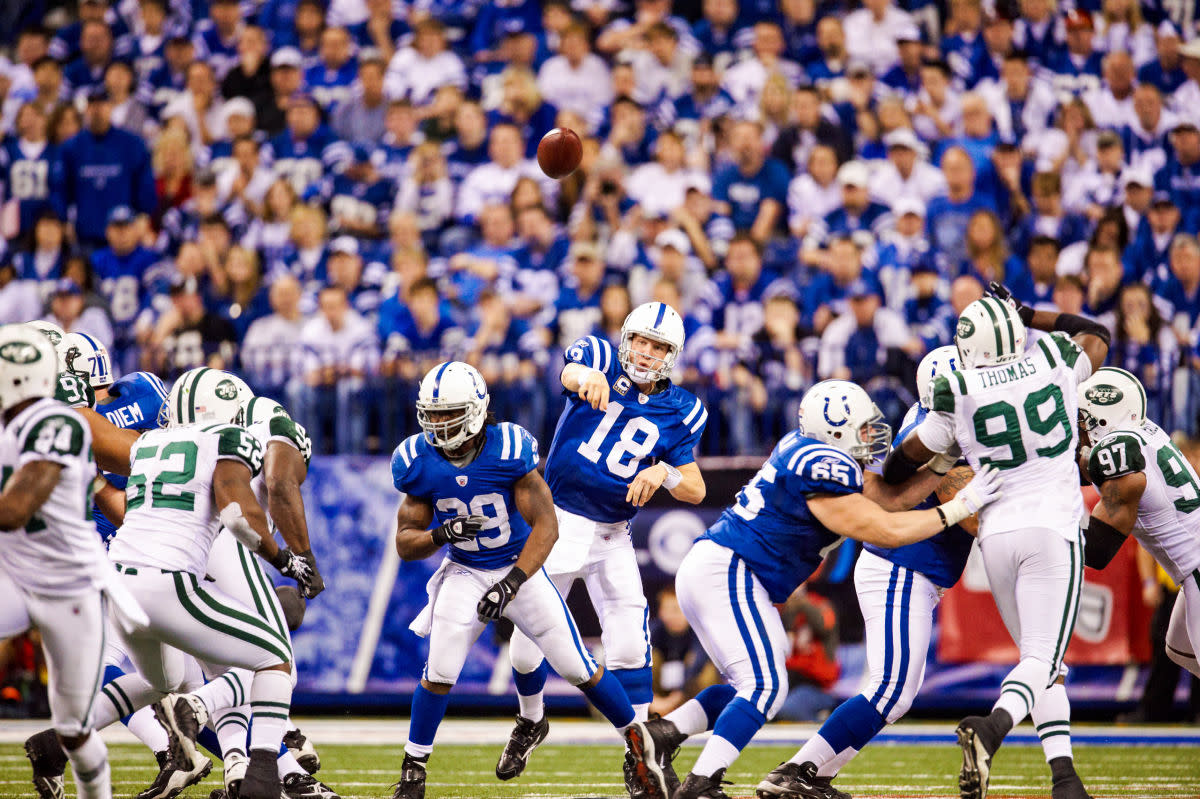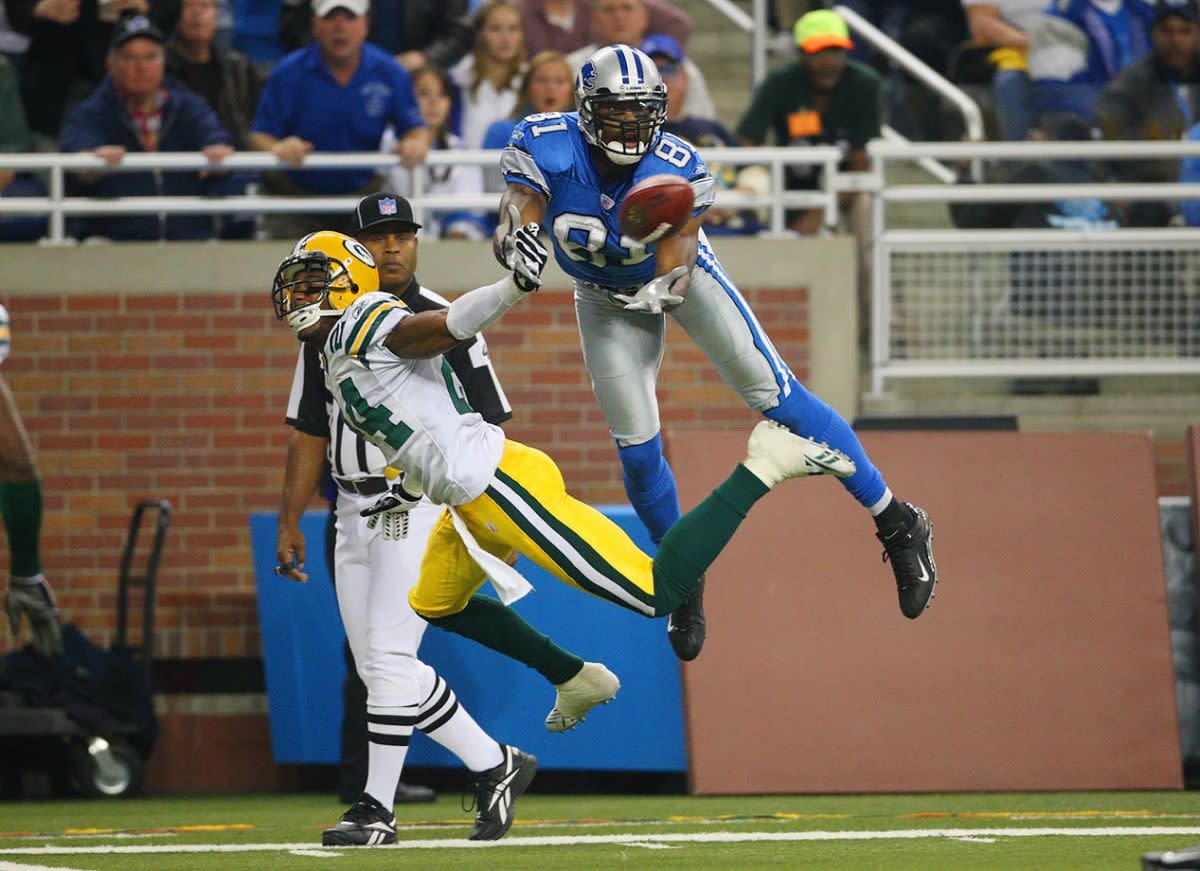Who Should Be Inducted Into the Pro Football Hall of Fame in 2021?


The day before Tom Brady and the Tampa Bay Buccaneers face Patrick Mahomes and the defending champion Kansas City Chiefs in Super Bowl LV, the 2021 Pro Football Hall of Fame inductees will be announced.
Frank Gatski, George McAfee, Bulldog Turner… Do these legends ring a bell? Probably not—at least for my generation of fans! That’s part of the Hall of Fame’s importance, to preserve the legacies of football’s best players long after their accomplishments have faded to the pages of the record books. Let's meet the finalists.
Peyton Manning: One of the top-three quarterbacks of all time. He had impeccable accuracy, especially when surveying the field and avoiding the blitz. He also made the players around him better, getting the most out of Marvin Harrison (Hall of Fame Class of 2016), Reggie Wayne (likely a future Hall of Famer) and Dallas Clark.
Charles Woodson: He was certainly one of a kind. He had the same skill set and style as Ed Reed, but his versatility put him head and shoulders above the rest. He has 63 career interceptions. He was a nine-time Pro Bowler, as well as one of the most feared, intelligent defensive backs ever.
Jared Allen: The Sack Master as he was known as during his playing days was just that. With over 100 career sacks, five Pro Bowls and the NFL record for most career safeties, the Sack Master could do it all.
Ronde Barber: You just don’t see quiet killers like Ronde Barber in today’s NFL. He wasn’t the brash, Jalen Ramsey-type defensive back. He did his job exceptionally well, and let his play do the talking. He is a member of the 2000’s All-Decade Team, and has 47 career interceptions.
Tony Boselli: This gentle giant has been a finalist a few times now, and his induction year is coming soon—if not this year. He was the first ever draft pick in Jacksonville Jaguars history, and he did not disappoint. He was a five-time Pro Bowler, and a member of the 90’s All-Decade Team, despite playing in just five of those 10 years. Talk about dominance.
LeRoy Butler: He and Steve Atwater (Hall of Fame Class of 2020) were nearly identical players. They both could knock your head off but also studied their own heads off. Butler, who is credited for inventing the Lambeau Leap, is a member of the 90’s All-Decade Team, and anchored the Packers’ defense the year they won Super Bowl XXXI.
Alan Faneca: Faneca is one of the most deserving players not yet in the Hall of Fame. He helped protect Ben Roethlisberger for three seasons, won a Super Bowl and was named to nine Pro Bowls. He was an immovable object for pass rushers, but was remarkably nimble. He started all but five of the 206 games he played in his career.
Torry Holt: A valuable member of the 2000 Greatest Show on Turf St. Louis Rams team—the franchise’s only Super Bowl win—he was opposite Hall of Fame receiver Isaac Bruce and made it nearly impossible for defenses to stop quarterback Kurt Warner. A seven-time Pro Bowler, Holt was considered the best route-runner of his era. Still a top player long after the Rams’ fortunes faded, Big Game Holt was named to the 2000’s All-Decade team. He retired with the 10th most receiving yards of all time.

Calvin Johnson: Megatron was one of my all-time favorite players, and I was crushed when he suddenly announced his early retirement. He was absolutely electric and the most physically gifted receiver of at least the last decade—maybe of all time. He had sure hands and an elite catch radius. He was fast and a great route-runner, especially considering his powerful frame. All of that helped him set the record for most receiving yards in a single season.
John Lynch: Younger fans may know him as the excellent GM for the San Francisco 49ers during their Super Bowl LIV campaign, but before that, he was a mean safety for the Buccaneers. To go along with legends like Warren Sapp and Derrick Brooks, Lynch anchored the secondary for the Super Bowl XXXVII-winning Bucs team.
Richard Seymour: One of the most physically imposing defensive tackles of all time, he was also one of the most successful. He used his combination of size and speed to blow by opposing lineman. He won three Super Bowl championships, made seven Pro Bowls and earned a spot on the 2000s All Decade Team.
Clay Matthews Jr.: Another quiet assassin, Matthews Jr. was as one of the most consistent linebackers of the 1980s. When you think of 80s linebackers, you think of Lawrence Taylor and Mike Singletary, but Matthews was named to four Pro Bowls and the Pro Football Reference 80s All-Decade team. He also is a member of the Browns Ring of Honor.
Sam Mills: The inspiration behind the Panthers “Keep Pounding” mantra, Mills was a fighter on and off the field. He was a beast of a linebacker for the Saints and Panthers. A five-time Pro Bowler, Mills has over 1,300 tackles to his name.
Zach Thomas: Overshadowed by Ray Lewis in the AFC, Thomas was one of the toughest and smartest linebackers of the 2000s, allowing him to diagnose plays before they materialized. Named to seven Pro Bowls, he earned his spot on the 2000s All-Decade Team.
Reggie Wayne: Peyton Manning’s partner in crime for so many years, Wayne seemed like he had glue on his hands, catching everything Manning threw his way. He finished his career with 14,345 yards, ranking No. 10 all time. He was named to six Pro Bowls and won Super Bowl XLI.
After analyzing all of the careers of these legends, here is my virtual 2021 Hall of Fame ballot:
Peyton Manning
With Tom Brady about to play in his 10th Super Bowl, it’s sometimes easy to lose sight of all that Manning accomplished in his career. But, when the two quarterbacks, each with a legitimate case for greatest of all time, were in their primes, it was Manning who had the upper hand in their rivalry.
He was a five-time NFL MVP, a member of the 100th Anniversary All Time Team and a 14-time Pro Bowler (tied for most all time). Aside from the numbers, watching Manning play was all that you’d need to know he was the best player on the field. He went through his progressions at such a high speed, opposing defenses had no time to react before he worked his eyes downfield, from read-to-read, released the ball and hit his receiver in stride. Not just a quick-release slant-thrower, Manning could sling it into tight windows 20-25 yards down the field, over the middle and toward the sideline.
Much like Brady went to a different team and is now in the Super Bowl, Manning also switched teams, going from the Colts to the Broncos, and won his second Super Bowl. In Denver, he came back from a career-threatening neck injury and continued to play at a high level. Even though he beat my Carolina Panthers in Super Bowl 50, it was nice to see the GOAT ride off into the sunset as a champion.
Charles Woodson
Another first ballot lock, he is undoubtedly one of the most productive defensive backs of all time. He could play safety and cornerback, and he could blitz. He and Ed Reed left everlasting legacies with their styles of play, and guys like Jamal Adams are trying to emulate the glory that Woodson left behind.
Woodson's consistency never wavered. He was named Defensive Rookie of the Year in 1998, and 11 years later in 2009, he was named Defensive Player of the Year—11 years ago, I could barely write my name! On this safety-heavy Hall of Fame ballot, including John Lynch and fellow Packer LeRoy Butler, Woodson is the lock for this year’s induction class.

Alan Faneca
This is Faneca’s year, and it’s about time. A finalist all six years that he has been eligible, Faneca was named to nine Pro Bowls and earned six first-team all-pro honors. Without other offensive linemen who are Hall of Fame locks this year (Tony Boselli will have to wait), the immovable object Faneca will get his bust in Canton in 2021.
Zach Thomas
A true undersized underdog, the 5’11” Thomas came out of college with many scouts and analysts saying he was too small to be a good NFL linebacker. Boy did he prove them wrong! He was Rookie of the Year in 1996, and played 184 games for the Dolphins during his career. He made seven Pro Bowls, earned seven all-pro selections and was named to the 2000’s All-Decade Team.
I always like to compare Zach Thomas to Brian Urlacher (Hall of Fame Class of 2018) because both were intelligent and strong, and could play both against the run and in pass coverage. This is Thomas’s year to prove the doubters wrong again.
Torry Holt
He was a key part of what made the Greatest Show on Turf click. With Holt and four Hall of Famers—quarterback Kurt Warner, running back Marshall Faulk, wide receiver Isaac Bruce and offensive tackle Orlando Pace—the St. Louis Rams were the NFL equivalent of the NBA superteams of today.
Holt was always dependable, and his 6-foot frame and speed allowed him to create separation with ease. He hauled in over 13,000 receiving yards throughout his career, and tallied up 74 receiving touchdowns. One thing that really set him apart and cemented his spot on the 2000's All-Decade Team was his elite route running. His ability to change direction on a dime and execute the double move was unlike his contemporaries, with the possible exception of Randy Moss. It’s time for Holt to join his teammates in Canton.
